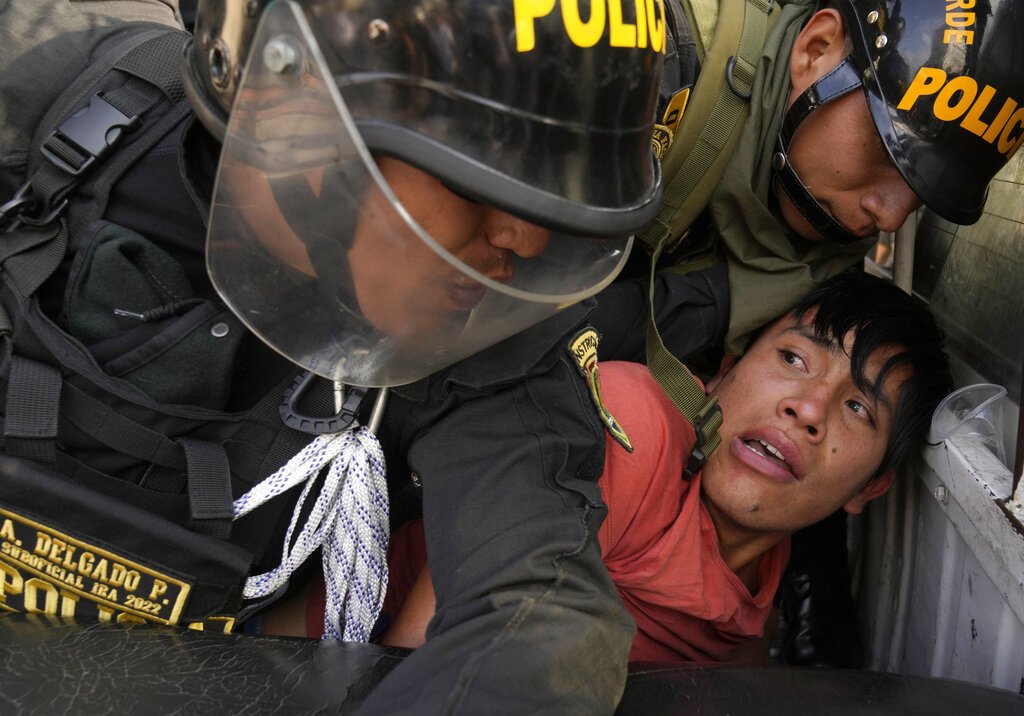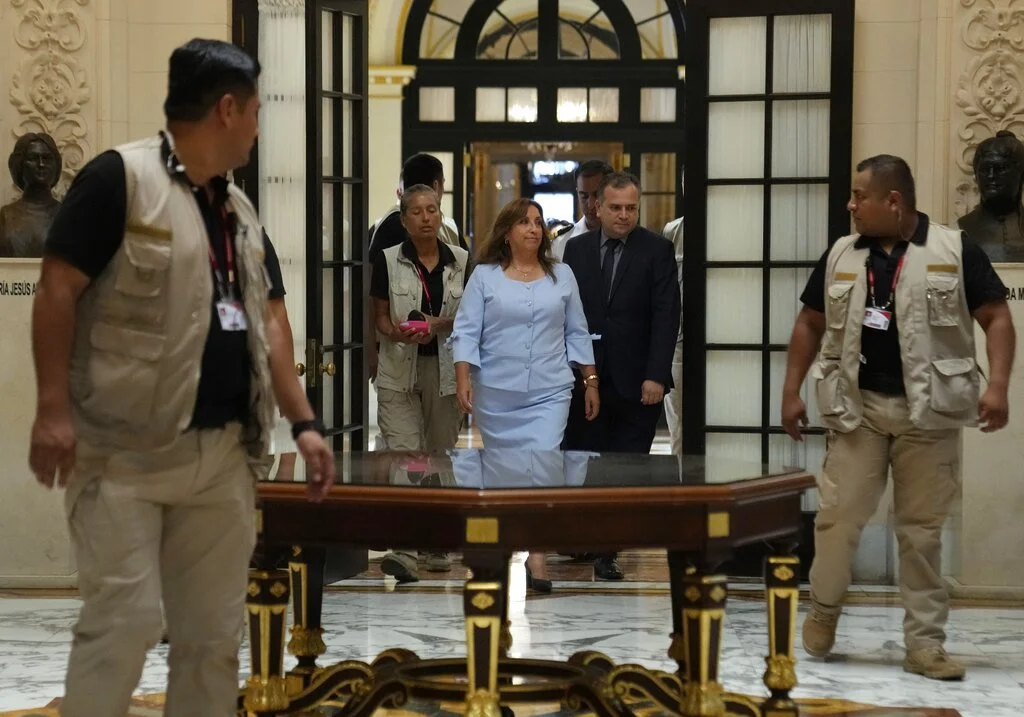Amnesty International report urges government to cease excessive use of force
Protester being detained by state police, after taking part in a march against Peruvian President Dina Boluarte in Lima, Peru, Jan.19, 2023. Image source: AP Photo/Martin Mejia
Amnesty International reports that the “Army and National Policy of Peru (PNP) have unlawfully utilized lethal force indiscriminately against the population, especially against Indigenous people and campesinos.”
Between Jan. 29 and Feb. 11, Amnesty performed an investigation in the Peruvian (towns) of Ayacucho, Andahuaylas, Chincheros, and Lima and gathered information on 46 cases of human rights violations and uncovered “serious shortcomings” when it comes to state investigations of human rights violations and the capacity to administer justice.
Amnesty began its investigation on human rights violations in Peru, under the backdrop of wide-spread protests after the impeachment of former President Pedro Castillo in late December. Castillo announced his plans to dissolve Congress and install an emergency government ruling by presidential decree, as a desperate measure to avoid Congress’ third impeachment vote on his presidency.
As a result, several of his cabinet members and other government officials resigned, and his actions prompted Peru’s military and police forces to refuse his orders, calling his efforts unconstitutional.
Soon after his impeachment and subsequent arrest, Peruvians began nation-wide protests, enraged by the new government that replaced Castillo. Dina Boluarte, Castillo’s successor, lacks legitimacy in the eyes of many Peruvians given that she was not democratically elected. Protestors demand her resignation and call for a full election.
President Boluarte has said she does not plan to resign.
Peruvian President Dina Boluarte, entering the government palace in Lima, Peru to give a press conference. Feb. 10, 2023 Image source: AP Photo/Martin Mejia
Protestors have set up blockades through Peru’s major cities, limiting access to airports, tourist hubs, police stations, and television network offices. Most notably, protestors have also restricted access to Machu Picchu, the ancient Inca citadel providing the main source of tourism revenue for the country. Boluarte responded by enacting a thirty-day state of emergency, suspending constitutional rights (including the rights to assembly and freedom of movement), and deployed police and military forces to affected areas.
Amnesty, in their investigation, highlighted the discriminatory use of violence on behalf of the Boluarte government. Amnesty’s report presents data collected by Peru’s Ombudsman office, which is in charge of protecting and monitoring constitutional rights. Among the main findings include the fact that “the number of arbitrary deaths due to state repression is disproportionately concentrated in indigenous communities, who although only consist of 13% of Peru’s total population, face 80% of all deaths throughout the crisis.”
“The systemic racism ingrained in Peruvian society and its authorities for decades has been the driving force behind the violence used to punish communities that have raised their voices” said Erika Guevara-Rosas, the Americas director at Amnesty International.
Amnesty also finds a lack of state capacity to address ongoing human rights violations. One incident occurred in the case of Beckam Romario Quispe Rojas, an 18-year-old son of an indigenous campesino, who died during a protest in Andahuaylas. The state investigated the incident but its final report did not match the facts independent investigators found on the ground. Furthermore, the subsequent autopsy, after being delayed for over a month, failed to report the kind of projectile that caused his death.
Marina Navarro, executive director of Amnesty International Peru, calls for Peru’s Attorney General’s Office to “urgently free up the time and resources required for the investigation of serious human rights violations and possible crimes under international law.”
On the same day that the report was released, Amnesty met with President Boluarte and provided several recommendations not only for her government but also for domestic and international organizations doing work for Peru.
Rosas summarized these recommendations by reiterating Amnesty’s plea to “interim President Dina Boluarte, asking her to put an end to the repression, address the legitimate demands of those protesting, and ensure that the state fulfills its obligation to investigate all human rights violations and bring to justice those found responsible.”


